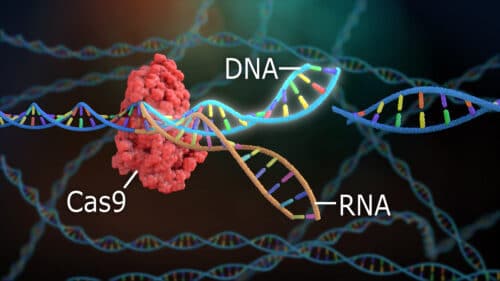In addition, the association welcomes the joining of two new companies: Better Seeds and FreezeM to a long list of companies, academic groups and hospitals that are partners in this project

The CRISPR-IL association announces the first successful editing experiments within the association's activities and the completion of the establishment of the computational system for genetic editing planning. The association works to make genetic editing technologies accessible to industries in the fields of personalized medicine, drug production, and the development of new varieties of plants and animals for agriculture and the food industry. In addition, the association welcomes the joining of two new companies: Better Seeds and FreezeM to a long list of companies, academic groups and hospitals that are partners in this project, including NRGene, Evogene , Rahan Meristem Cultures, Pluristem, General Biotechnology (BTG), Hazera Seeds, Colors Farm, TargetGene, Tel Aviv University, Ben Gurion University, Bar Ilan University, the Hebrew University, the Weizmann Institute of Science, the Herzliya Interdisciplinary Center, the Schneider Pediatric Center and the Sheba Tel Hashomer Hospital.
The Innovation Authority approved the establishment of the CRISPR-IL association at the beginning of June 2020 with the aim of placing Israel at the forefront of global innovation in the field of genomic editing. The association will combine artificial intelligence and CRISPR technologies through the development of advanced computing tools for genomic editing. The computational tools will enable the improvement of the accuracy and efficiency of the genomic editing and the fast and efficient implementation of these tools in industry and research.
The CRISPR (Clustered Regularly Interspaced Short Palindromic repeats) system, which enables cutting in a specific region of DNA, silencing or activating genes and replacing a DNA segment with another segment, has been considered for several years as a breakthrough technology in the field of genetic editing. The awarding of the 2020 Nobel Prize in Chemistry that took place this week to Dr. Emmanuel Charpentier and Dr. Jennifer Dodna for developing a method for genetic editing based on the CRISPR system gives official international recognition to this groundbreaking technology. The technology has enormous potential for shortening the time required to develop new products while reducing development costs. Among the possible uses of the technology are: development of advanced and personalized medical treatments, repair of genes involved in diseases, improvement of properties of agricultural produce and more. According to estimates, according to the research company Ark Invest, by 2025 the size of the market for products based on CRISPR technologies will be around 500 billion dollars.
Dr. Eyal Emanuel, Chairman of the Association and Chief Scientist of the Abugen Company - "We are proud of the progress achieved in the Association's development plans, including the launch of the first version of the genetic editing planning system. We welcome the joining of the new companies that will help establish and expand the development and application of the technologies developed in the fields of plant-based agriculture (Better-Seeds) and new fields such as the production of alternative protein from insects (Prism)."
Dr. Gil Ronan, CEO and founder of Energine, the leading company in the association - "Using CRISPR enables the rapid development of innovative products such as medicines, medical treatments, and food. The joint work of Israeli commercial companies, hospitals and academic institutions allows us to better deal with global competition and keep the State of Israel at the forefront of science and technology."
Dr. Ami Appleboom, Chairman of the Innovation Authority: "The Innovation Authority has long identified the CRISPR field as a growth engine for companies in industry and academia that will help develop faster and more precisely products for the pharmaceutical and agricultural industries. Joint funding of dozens of industrial and research bodies within the framework of the CRISPR-IL association will make it easier for them to penetrate the market and provide proper competition for products manufactured in Israel. The purpose of the activity at Magad is to develop tools that will help transfer the use of CRISPR from academia and research to industrial applications for the benefit of developing breakthrough products and treatments. The development led by the association includes methods aimed at evaluating the amount of accurate results obtained in the editing and the accurate and desired edits received - the tools are computational tools based on artificial intelligence technologies and they combine within them all the knowledge that has been accumulated in the field in the world to date. During the 3 years of the association's activity, about 5 rounds of genomic editing will be performed on hundreds of different genes in vegetables, animals and human cells, the results will be fed into the developed tool and will be used to improve it so that at the end of the development there will be an effective software tool that can be used for accurate and efficient genomic editing in a variety of cells and creatures. We are convinced that the tool will allow the industry to develop innovative and advanced products based on the technology of genomic editing."
More of the topic in Hayadan:
- The Innovation Authority approved the establishment of the CRISPR-IL consortium that combines artificial intelligence technologies to advance the field of genomic editing
- The development of the corona vaccine can also lead to a gene therapy process for cancer
- The CRISPR-Cas9 gene editing method is beginning to show progress in curing genetic diseases
